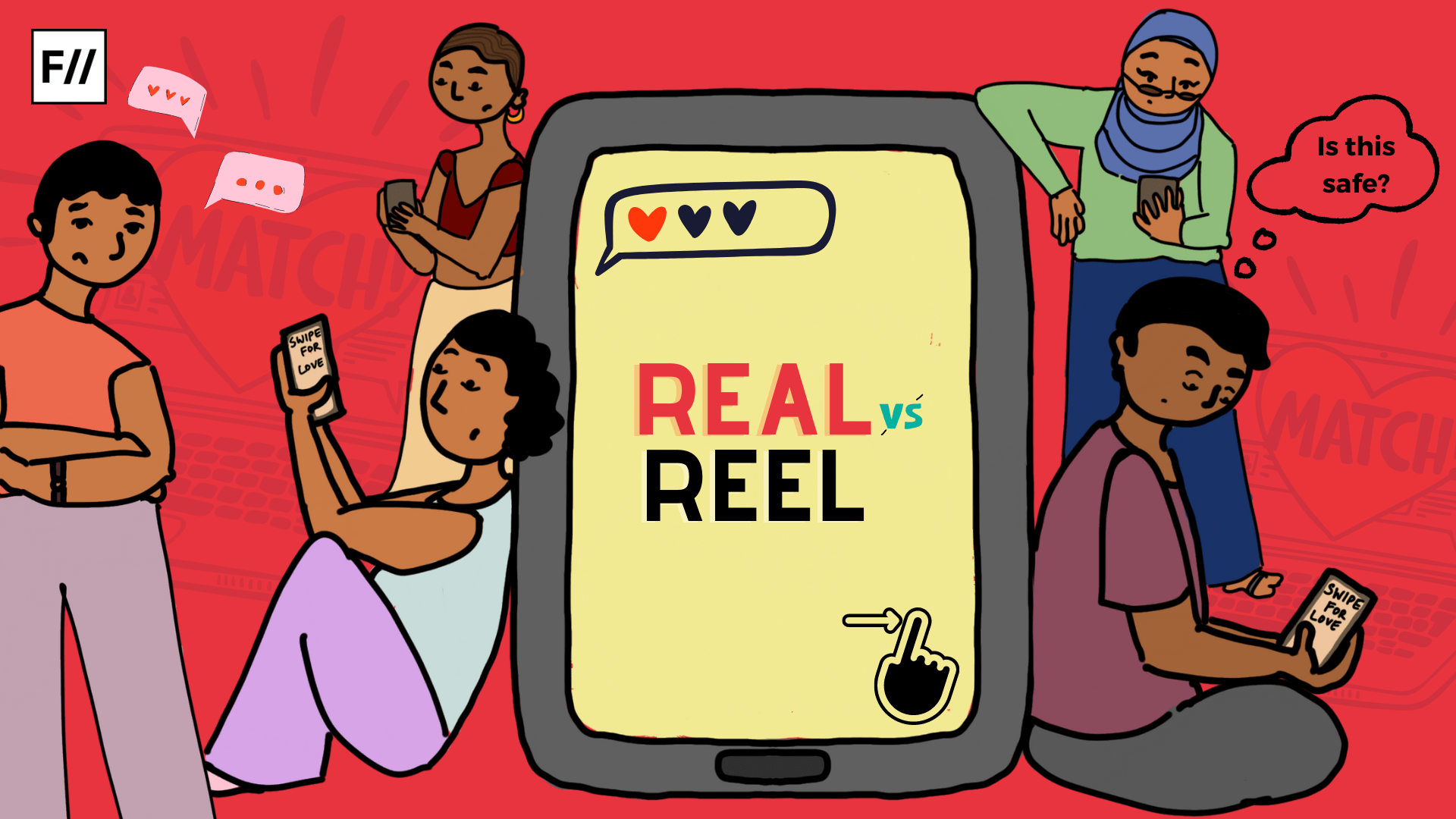There once was a time when we loved at first sight, shared letters and met them in person. But today, we may not even see each other for months and still talk to each other. We may not fall in love at first sight but by sharing photos, memes, video calls etc, gradually, we are acquainted with them.
Love in the digital age is a complex phenomenon. On the one hand, love has become increasingly accessible and easy to find and on the other hand, the hazards of technology and Artificial Intelligence, real vs virtual and exposure to harmful content still loom larger than ever.
No doubt, it has become effortless to connect and find romantic relationships online, with a pool of options available. With just a click, one can initiate ‘courting‘ the person of their liking. It also becomes easy to speak with a person through the barrier of a device in the comfort of one’s safe space. And on getting comfortable and acquainted with the person, take the one last leap of meeting them in real life. This mitigates the dangers of meeting a stranger for the first time which was the case in dating offline.
With social media platforms with video and audio calling access, one can even date someone thousands of miles away. Even for married couples, or anyone in a long-distance relationship, sustaining the relationships has become much easier.
Somehow, the real and artificial are creating complexities in love as well. We constantly seek the approval of others; likes, and comments. We look at photos of the places one has gone to while finding a romantic partner and we are constantly looking for affirmation, which is something one may not do in a real-time offline dating setup.
For persons from the queer community, it once was difficult to find romantic partners because of the discrimination, ostracisation, hatred and systematic oppression against them, however, through various dating sites solely dedicated to queer persons, love and relationships have become a little more convenient and less threatening to them.

Yet, it also becomes difficult to understand one’s emotions, feelings, and thoughts when one tries to find a partner, or lover, through the Internet. With each day the difference between real and ‘reels‘ is growing, and our emotions are also getting convoluted and complex by navigating our lives on the internet.
Somehow, the real and artificial are creating complexities in love as well. We constantly seek the approval of others; likes, and comments. We look at photos of the places one has gone to while finding a romantic partner and we are constantly looking for affirmation, which is something one may not do in a real-time offline dating setup.
There is ample data available that shows many people are struggling with the mental health impact of dating online. In research called “Swipe-based dating applications use and its association with mental health outcomes: a cross-sectional study,” the result shows “Being an SBDA{swipe based dating applications} user was significantly associated with having psychological distress (OR = 2.51,95%CI (1.32–4.77)), p = 0.001), and depression (OR = 1.91,95%CI (1.04–3.52), p = 0.037) in the multivariable logistic regression models, adjusting for age, gender and sexual orientation.” In another study, Strubel & Petrie found that “Tinder use was significantly associated with decreased face and body satisfaction, more appearance comparisons and greater body shame, and, amongst males, lower self-esteem.”
Apart from having mental health and psychological issues while dating online, cyberspace poses a dangerous picture to women and minority genders. Targeted trolling, hate campaigns, rejected lovers morphing and bullying women, and AI-generated fake images and videos, create a toxic space where even the laws aren’t ready enough to tackle such monstrous issues about gender-based violence, misogyny and sexism.
In addition, the online space is a big reflection of public offline space or the societies we live in where casteism, sexism, and religious polarisation are rampant, and such virtual societies are as harmful to minorities as real societies.

In the purview of online dating and relationships, the effects and impacts it has on people; both positive and negative, FII is inviting submissions on Love In Digital Era, throughout February 2024.
Here are a few broad pointers that may help you write your articles on the topic:
- Love, dating, and relationships online
- Queer communities and online dating
- Risks of online dating
- Online dating, a reflection of tangible society and culture
- Is online dating affordable and feasible for everyone?
- Online dating; gender roles and expectations
- Love beyond the norms of caste, class, faith and age
- Love and sex in the online world
- Sex and sexuality in VR
- Modern love and dating
This list is not exhaustive. Please write on other topics within the theme that we may have missed listing here. Some of these topics are extremely personal, and if you wish to maintain anonymity concerning the publication of such pieces, kindly mention them in your email.
Please refer to our submission guidelines before you send us your entries. You may email your submissions to shahinda@feminisminindia.com
We look forward to your drafts and hope you enjoy writing them
Featured Illustration: Ritika Banerjee for Feminism In India
About the author(s)
Feminism In India is an award-winning digital intersectional feminist media organisation to learn, educate and develop a feminist sensibility and unravel the F-word among the youth in India.




